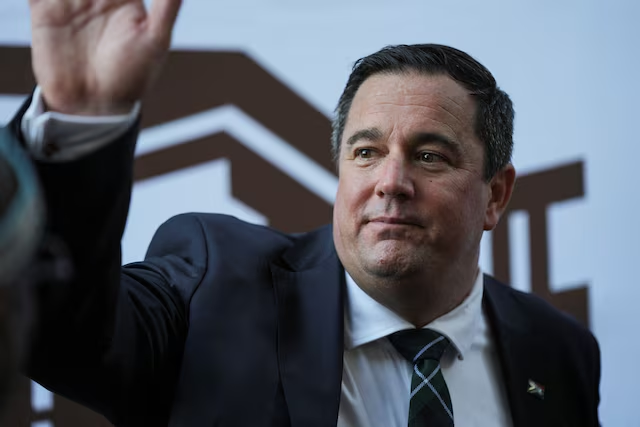South Africa: DA threatens no-confidence motion against president Ramaphosa

South Africa: DA threatens no-confidence motion against president Ramaphosa
Tensions within South Africa’s Government of National Unity (GNU) reached a boiling point this week as the Democratic Alliance (DA) threatened to initiate a motion of no confidence against President Cyril Ramaphosa.
This follows the controversial dismissal of DA’s Andrew Whitfield as deputy minister—an act the party claims violated coalition agreements.
The political standoff now raises serious questions about the durability of the GNU and Ramaphosa’s leadership style amid growing mistrust and internal divisions.
Why Did the DA Withdraw from the National Dialogue?
The Democratic Alliance (DA) recently withdrew from President Ramaphosa’s national dialogue initiative, citing deep frustrations over the dismissal of their deputy minister, Andrew Whitfield, without prior consultation. DA leader John Steenhuisen accused the ANC of making decisions in secret, saying the party had “lost confidence in his ability to lead the GNU.” While they’ve remained in the coalition, the withdrawal signals a growing rift in the power-sharing pact.
Did the DA Threaten a Motion of No Confidence?
Yes. The DA publicly threatened to table a motion of no confidence against Ramaphosa. Steenhuisen disclosed it was under serious consideration by the party’s federal executive, meant as a warning shot over perceived arrogance and exclusion in government decisions. However, he ultimately stated the DA chose not to proceed—though dissatisfaction remains strong.
How Is the GNU Responding to Growing Friction?
Despite the strained relations, President Ramaphosa has signaled he’s open to compromise. He requested that Steenhuisen nominate a replacement for Whitfield, reaffirming DA’s role in the coalition and signaling a desire to restore partnership. Still, the DA’s withdrawal from dialogue underscores deeper ideological disagreements and mistrust .
What Did Ramaphosa Say About the Cabinet Shake-up?
In dismissing Whitfield, Ramaphosa defended his constitutional right to appoint and fire ministers unilaterally. He emphasized that his decisions aren’t political vendettas but executive prerogatives guided by national interest—adding that threats from coalition partners would not influence him.
How Is the DA Framing Its Grievances?
Steenhuisen, speaking after the withdrawal, was clear: the ANC has sidelined the DA and is acting without due consultation. He said the party is “losing confidence in [Ramaphosa’s] ability to act as a leader not of the ANC, but of the GNU”—suggesting that recent dismissals suggest the GNU is effectively being run by ANC interests, not coalition consensus.
Will This Affect Parliamentary Support and Legislation?
Potentially yes. With the DA withdrawing from dialogue, the ANC now lacks comfortable consensus in Parliament. The coalition relies on DA support for passing legislation and budgets. DA non-cooperation risks legislative gridlock or delays—especially if tension escalates in the coming weeks.
Why Is a No-Confidence Threat Significant?
Few moments are as politically symbolic as threatening a no-confidence motion against a sitting president in a coalition government. It marks a dramatic shift—signalling not just policy disagreements, but a crisis of trust and coalition integrity. While not enforced yet, even the threat sends a potent message about the fragility of GNU unity.
READ ALSO
South Africa: What Cyril Ramaphosa said about Andrew Whitfield’s sack
What Could Happen Next?
-
DA Minister Nomination – The DA may submit a Whitfield replacement to diffuse conflict.
-
Re-entry into Dialogue – If new processes emerge, DA could rejoin national talks.
-
Escalation to Motion – Should the ANC ignore DA concerns, the threat may be carried out.
-
Broader Coalition Strain – The EFF and other parties could exploit the rift, pushing for their agendas or forming new alliances.
What’s Really Going On?
The DA’s flight from dialogue and no-confidence threat reveal a coalition under strain, where trust cracks, and power imbalances emerge. Ramaphosa is walking a tightrope: enforcing executive authority while maintaining partner confidence. It could shape South Africa’s political landscape ahead of the next election.

